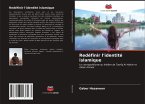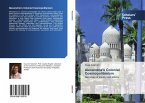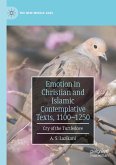Orientalist observers on the one hand, and on the other fundamentalist Muslims have defined Islam as the West's inimical Other, which has made the so-called clash of civilizations sound inevitable. Cosmopolitan observers challenge these misrepresentations. Self-representation of the so-called Islamic world requires a thoughtful reading of current events as well as an accurate evaluation of Islam's historical relationship with other religions and cultures. By examining the concepts of Kwame Anthony Appiah's "partial cosmopolitanism" and Bruce Lawrence's "Muslimcosmopolitanism" in the theater of Tawfiq Al-Haim and Akbar Ahmed, this study redefines identity contours and suggests an accurate nomenclature regarding Islamic identity.There is an urgent need to represent the cosmopolitan dimension we encounter when we read writers from different generations and different "Islamic" cultures who illustrate the resources of cosmopolitanism shared across the Islamicate world. Tawfiq Al-Hakimand Akbar Ahmed are examples for these writers.








